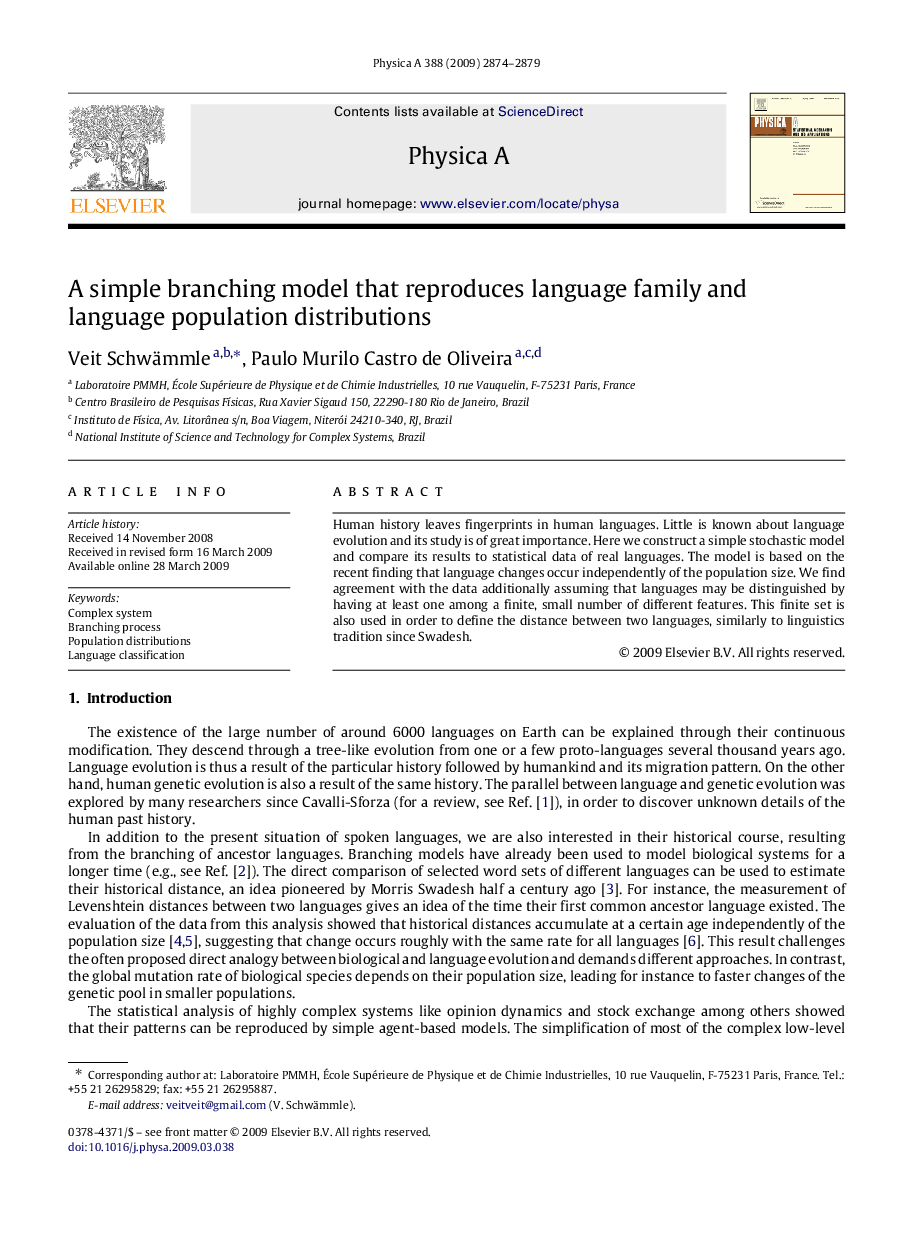| Article ID | Journal | Published Year | Pages | File Type |
|---|---|---|---|---|
| 979378 | Physica A: Statistical Mechanics and its Applications | 2009 | 6 Pages |
Abstract
Human history leaves fingerprints in human languages. Little is known about language evolution and its study is of great importance. Here we construct a simple stochastic model and compare its results to statistical data of real languages. The model is based on the recent finding that language changes occur independently of the population size. We find agreement with the data additionally assuming that languages may be distinguished by having at least one among a finite, small number of different features. This finite set is also used in order to define the distance between two languages, similarly to linguistics tradition since Swadesh.
Related Topics
Physical Sciences and Engineering
Mathematics
Mathematical Physics
Authors
Veit Schwämmle, Paulo Murilo Castro de Oliveira,
